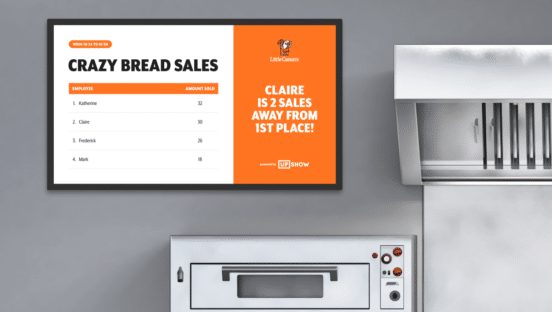It’s safe to say that consumers have never been more concerned about restaurants meeting and even exceeding health code standards. In fact, according to a 2021 Ecolab report, 95 percent of consumers wanted to see as much if not more cleaning once the pandemic subsided, while 86 percent of respondents said a restaurant’s commitment to health and safety practices helped determine whether or not they wanted to patronize that location.
These sentiments are backed up by other findings, too, some of which predate the pandemic. For example, a study showed that Los Angeles County restaurants receiving the highest health inspection score (“Grade A”) saw a 5.7 percent increase in revenue compared to restaurants receiving lesser grades. Similarly, a Harvard study found that Yelp’s publishing of health inspection scores had a direct relationship with consumers’ purchase intent while on the app.
All of these things add up to reveal something that most operators already know: all it takes is a single bad inspection, or—worse still—a food safety outbreak for a brand’s entire reputation to be tarnished. At the same time, implementing proper food safety training is increasingly challenging in the face of the ongoing labor crisis.
“Proper food safety is a team sport,” says Arash Nasibi, CEO of Hazel Analytics. “If guest volumes are back to normal and you’re trying to serve them with half the staff you used to have, it’s not surprising if some restaurant managers aren’t getting to food safety checklists, especially if the priority is serving guests and you can only keep them waiting for so long.”
A Data-Driven Solution
In many ways, Hazel Analytics was born for this moment. Founded upon research conducted by Nasibi and a pair of his professors during his time in graduate school at UCLA, the software company helps give restaurant brands visibility and insights into the health inspections happening across their brand’s locations. The idea is that automating the collection of store-level health-inspection data and standardizing the results into actionable insights helps restaurants perform more profitably—and safely.
“Manual processes for health inspection and compliance management quickly stop working as the size of your operation scales,” Nasibi says. “Once you’re at a few dozen, let alone hundreds, or thousands of locations, information tends to not travel fast or reliably enough. This can mean that you get inspection results too late, when it’s no longer actionable. Or worse, you don’t get the information at all from some of your locations.”
Hazel’s data-driven approach also helps produce predictive analytics for brands. Pivotally, that can help restaurants get ahead of issues before they happen. “Using machine learning, we’ve been able to develop a model that is able to predict how likely an establishment is to get cited for critical violations at its next inspection,” Nasibi says.
Del Taco, the 600-unit quick-service Mexican chain, was one of the first brands to adopt Hazel’s platform. Because Del Taco takes great pride in cooking many of the components of its menu from scratch, health and food safety are also integral parts of the brand’s core identity.
“When I joined the company in 2015, we did not have an automated way to quickly see health-inspection results, or an easy way to roll up all of the data to understand trends and more global opportunities,” says Kofi Boaitey, senior director of quality assurance and food safety. “Hazel Analytics has become one of our critical food safety tools. It gives us rapid visibility into inspections and helps us benchmark performance within the chain and in comparison to our peers.
Protecting Brands, Employees, and Customers
Since implementing Hazel, Boaitey feels strongly that Del Taco’s teams have enhanced their focus on health and food safety protocols. More importantly, now he has the data to support that feeling. He is able to partner with the operations teams to build process enhancements and training to attack the most challenging areas that are coming through in the Hazel reporting.
“One of the ways we’ve gotten buy-in from franchisees, our operations team, our team members is by incentivizing good scores,” Boaitey says, adding that health inspection scores have become an integral KPI for the company, and is an important part of their “balanced scorecard” that, in company locations, create an additional bonus opportunity. “We have adopted an internal food and personal safety branding surrounding the idea that our brand is ‘trusted and safe’ throughout the pandemic. The Hazel data is a critical component in ensuring we live up to that mantra even as we hopefully exit the most challenging times of the pandemic.”
There’s a palpable sense of relief when Boaitey talks about Hazel and the effect it’s had on his brand. It has made his job easier, and it’s made Del Taco better at safely serving food to its guests—making it a more profitable restaurant brand in the process.
This is exactly how Nasibi envisioned his software working. “That’s what I really want restaurant operators to understand: As a brand with hundreds, even thousands of locations, you don’t have to feel helpless with respect to managing your health inspections,” Nasibi says. “Solutions exist that will help you take control of your food safety and compliance programs. Health departments have largely resumed and gotten back to normal when it comes to health inspection safety enforcement, and consumers are putting more value than ever before on hygiene and safety—now is the time to take this step.”
For more on how to make your storefronts safer and more profitable, visit the Hazel website.














